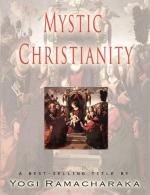The title of “Magi” was highly esteemed in those ancient days, but it fell into disrepute in the latter times owing to its growing use as an appellation of the practitioners of “Black Magic,” or “evil wonder-workers” or sorcerers, of those days. But as a writer in the New International Encyclopedia (Vol. XII, page 674) has truly said:
“The term is employed in its true sense by Matthew (2:1) of the wise men who came from the East to Jerusalem to worship Christ. The significance of this event must be observed because the Messianic doctrine was an old and established one in Zoroastrianism.”
The same article says of the Magi: “... they believed in a resurrection, a future life, and the advent of a savior.”
To understand the nature of the Magi in connection with their occult “wonder working,” we must turn to the dictionaries, where we will see that the word “Magic” is derived from the title “Magi;” the word “Magician” having been originally “Magian”, which means “one of the Magi.” Webster defines the word “Magic” as follows: “The hidden wisdom supposed to be possessed by the Magi; relating to the occult powers of nature; mastery of secret forces in nature”, etc. So you may readily see that we are right in stating to you that these Wise Men—the Magi who came to worship the Christ-child, were in reality the representatives of the great Mystic Brotherhoods and Occult Orders of the Orient—Adepts, Masters, Hierophants! And thus do we find the Occult and Mystic “wonder workers”—the high-degree brethren of the Great Eastern Lodges of Mystic Occultism, appearing at the very beginning of the Story of Christianity, indicating their great interest in the mortal birth of the greater Master whose coming they had long waited—the Master of Masters! And all Occultists and Mystics find pleasure and just pride in the fact that the first recognition of the Divine Nature of this human child came from these Magi from the East—from the very Heart of the Mystic Inner Circles! To those so-called Christians to whom all that is connected with Mysticism and Occultism savors of the fiery sulphur and brimstone, we would call attention to this intimate early relation between The Musters and the master.
THE STAR IN THE EAST.
But the Mystic story begins still further back than the visit of the Magi to Bethlehem. Did not the Magi say, “Where is He? We have seen His star in the East and have come to worship him.” What is meant by the words, “We have seen his star in the East”?




